
Una película de Hirokazu Koreeda
When talking about fantasy, the term is usually associated with works, ideas, concepts that are impossible to live in reality: flying dragons, humans that fly through the galaxy without any special costume, etc., For its part, the supernatural is often considered inexplicable and encompasses everything that escapes our understanding. However, sometimes the fantastical and supernatural can also feel very real and true.
Cuando se habla de fantasía, se suele asociar el término a obras, ideas, conceptos que son imposibles de vivir en la realidad: dragones voladores, humanos que vuelan a través de la galaxia sin ningún traje especial, etc., Por su parte, lo sobrenatural suele considerarse inexplicable y abarca todo aquello que escapa de nuestra comprensión. Sin embargo, algunas veces, lo fantástico y lo sobrenatural también pueden sentirse muy reales y verdaderos.
Such is the case of what happens in After life a 1998 Japanese drama written and directed by Hirokazu Koreeda and one of the films that I liked the most on the subject of life after death. The story begins with what appears to be a train station, or the reception of some building, through whose threshold a series of people enter from a completely foggy environment. A few minutes into the film we realize that before these people did, many others passed by and we are told - us and newcomers - what we were already beginning to suspect from the title of the film: these people have recently died. However, the space to which they have arrived does not fulfill the functions of heaven or hell, but of intermediate. No, it's not a purgatory either, they don't get there to repent or expiate guilt, much less to reunite with their loved ones. Their passage through that place has a single objective: to define the memory they want to accompany them for the rest of eternity.
Tal es el caso de lo que sucede en After life un drama japonés de 1998 escrito y dirigido por Hirokazu Koreeda y una de las películas que más me ha gustado sobre el tema de la vida después de la muerte. La historia empieza con lo que parece ser una estación de tren, o la recepción de algún edificio, por cuyo umbral ingresan una serie de personas desde un ambiente completamente neblinoso. A los pocos minutos de película nos damos cuenta que antes de que estas personas lo hicieran, muchos otros pasaron por allí y se nos dice - a nosotros y a los recién llegados - lo que ya comenzábamos a sospechar desde el título de la película: estas personas han muerto recientemente. Sin embargo, el espacio al que han llegado no cumple las funciones de cielo ni de infierno, sino de intermedio. No, tampoco es un purgatorio, no llegan allí a arrepentirse ni a expiar culpas, mucho menos a reencontrarse con sus seres queridos. Su paso por eso lugar tiene un único objetivo: definir el recuerdo que desean que los acompañe por el resto de la eternidad.
Advised by a group that works on the premises, each person must choose a decisive moment in their lives. Each of the dead must choose a single memory to be captured on film and thus be able to take it with them when they go to the place they are going.
Asesoradas por un grupo que trabaja en el recinto, cada persona deberá escoger un momento decisivo de sus vidas. Cada uno de los muertos debe escoger un único recuerdo para que sea plasmado en una película y poder así llevarlo con ellos cuando vayan al lugar hacia el que se dirigen.
In Purgatorio, the central part of Dante's Commedia, there is talk of two rivers that souls must cross before entering Paradise: the Lethe and the Eunoe. The crossing through the first of them erases the memory of the souls and with them their faults and sins; passing through the second reminds them of their good deeds. In this way those who ascend to Paradise carry with them only the memory of good things. In After life something similar happens, except that a single memory will be kept for eternity, instead of several, and more importantly, the person is the one who decides which memory they want to take, which means that someone can choose to eternally remember a moment that was not necessarily good or happy. We may think that it is illogical, but each person would be within their right to make this choice. This core, the responsibility and the not at all easy task of choosing that memory is enough to make us reflect, do we have any memory so important as to choose it at the price of giving up the rest of our memory?
En Purgatorio, la parte central de la Commedia de Dante, se habla de dos ríos que deben atravesar las almas antes de entrar en el Paraíso: el Lete y el Eunoe. El cruce por el primero de ellos borra la memoria de las almas y con ellos sus culpas y pecados; el paso por el segundo les hace recordar sus buenas obras. De esta forma quienes ascienden al Paraíso llevan consigo sólo el recuerdo de las cosas buenas. En After life sucede algo similar, con la salvedad de que se conservará un único recuerdo para la eternidad, en vez de varios, y más importante aún, la persona es quien decide qué recuerdo quiere llevarse, lo que quiere decir que alguien puede escoger recordar eternamente un momento que no necesariamente haya sido bueno o feliz. Quizás pensemos que es ilógico, pero cada persona estaría en su derecho de hacer esta elección. Este núcleo, la responsabilidad y la nada fácil tarea de elegir esa memoria a es suficiente para hacernos reflexionar, ¿tenemos nosotros algún recuerdo tan importante como para elegirlo al precio de renunciar al resto de nuestra memoria?
It's not about whether it's fair or not, or whether it's enough; The fact is that those are the rules and one has to play respecting them. It is a single memory for eternity. In the midst of this selection we are discovering the lives of the newcomers and also of those who assist them, who are they? how did they get there? what life have they led? Despite being a story written in Japan, with Japanese actors, Japanese names and Japanese lives, this gallery of characters represents humanity; their fears, their guilt, their joys, their dreams, their words... are also ours. The film is very emotional, thoughtful and romantic: the fact that they have to represent - in a film - that memory and record it gives a more beautiful stamp to the story, in addition to the fact that it was filmed in the late nineties we see tapes of VHS (the mass use of the DVD format had not yet occurred), film cameras of the time and that vintage vibe mixed with the serenity of oriental stories, gives a more serene stamp to a film that nevertheless deals with a timeless theme.
No se trata de si es justo, o no, ni de si es suficiente; el caso es que esas son las reglas y uno tiene que jugar respetándolas. Es un sólo recuerdo para la eternidad. En medio de esta selección vamos descubriendo a vida de los recién llegados y también de quienes los asisten, ¿quiénes son? ¿cómo llegaron allí? ¿qué vida han llevado? A pesar de ser una historia escrita en Japón, con actores japoneses, nombres japoneses y vidas japonesas, esta galería de personajes representa a la humanidad; sus miedos, sus culpas, sus alegrías, sus sueños, sus palabras... son también nuestras. La película es muy emotiva, reflexiva y romántica: el hecho de que deban representar - en una película - ese recuerdo y grabarlo le da un sello más bonito a la historia, además de que por haber sido filmada a finales de los noventa vemos cintas de VHS (aún no se había dado la masificación del formato DVD), cámaras de filmación de la época y esa onda vintage mezclada con la serenidad de las historias orientales, le da un sello más sereno a una película que sin embargo trata un tema atemporal.
There are situations that cause laughter, yes, and some joy, but in general it is a nostalgic film, reminiscent of a life that has already ended for the characters but continues for those of us who see them on the screen. Hence, it can also be taken as a call to those of us who are alive: are we living a full life, according to our desires? Are we stopping living just to exist? When we reach the end of our life, will we be proud of the life we have led? Will we have any truly memorable memories to keep for eternity? Undoubtedly, many of those who have seen the film have identified with one of the characters or with one of their memories, which is enough to recommend seeing this film, but there's also its good direction, the script, the photography and the originality of the proposal.
Hay situaciones que provocan risa, sí, y algo de alegría, pero en general es una película nostálgica, evocadora de una vida que ya ha terminado para los personajes pero que continúa para quienes los vemos en la pantalla. De allí que pueda tomarse también como un llamado a quienes estamos vivos: ¿estamos viviendo una vida plena, acorde con nuestros deseos? ¿estamos dejando de vivir solamente por existir?, al llegar al final de nuestra vida, ¿estaremos orgullosos de la vida que hemos llevado? ¿tendremos algún recuerdo verdaderamente memorable como para conservarlo por la eternidad? Sin duda alguna, muchos de quienes han visto la película se han identificado con alguno de los personajes o con alguno de sus recuerdos, lo que ya es suficiente para recomendar ver esta película, pero es que también debe destacarse su buena dirección, el guión, la fotografía y la originalidad de la propuesta.
That said, it should also be clarified: it's a slow movie. It couldn't be different. If you are one of those who like movies with a fast pace or in which things are happening at every moment, this may not be for you. In the narration, traditional cinema is mixed with documentary-type interviews, which means that several scenes of different people telling things are shown. This, interspersed with the reflections that are made and the passing of days in a place where time should not exist makes the film feel longer than it is; however, if you immerse yourself in it and decide to absorb the experience, that time dilation will have been worth it, have any of you seen this movie? I read you in the comments.
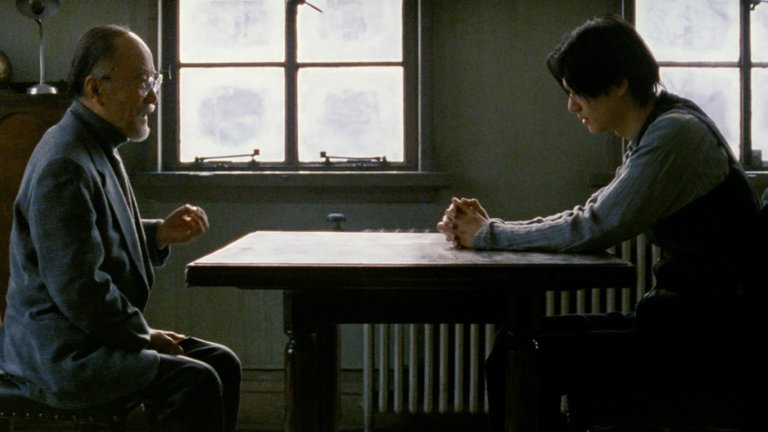
Dicho esto, también hay que aclarar: es una película lenta. No podía ser diferente. Si eres de quienes les gustan las películas con ritmo trepidante o en las que a cada instante están sucediendo cosas, esta quizás no sea para ti. En la narración se mezcla el cine tradicional con entrevistas tipo documental, lo que hace que se muestren varias escenas de diferentes personas contando cosas. Esto, intercalado con las reflexiones que se hacen y el paso de los días en un lugar en el que no debería existir el tiempo hace que la película se sienta más larga de lo que es; sin embargo, si uno se sumerge en ella y se decide a absorber la experiencia, esa dilatación temporal habrá valido la pena, ¿alguno de ustedes ha visto esta película? Los leo en los comentarios.
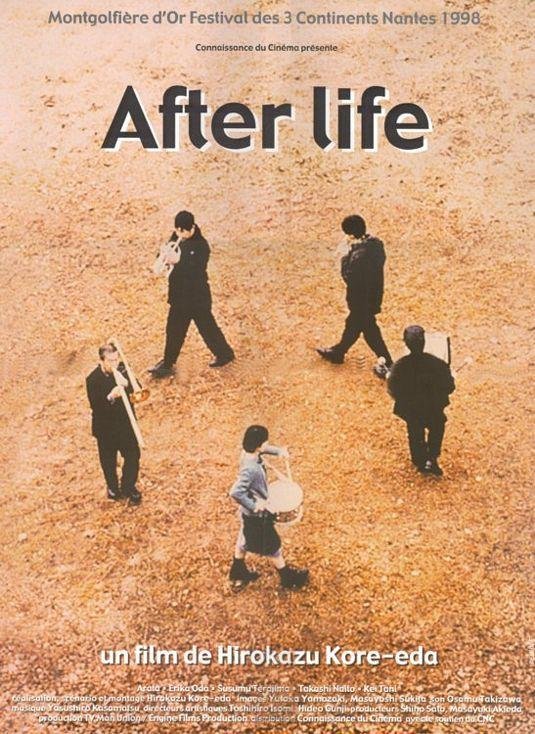
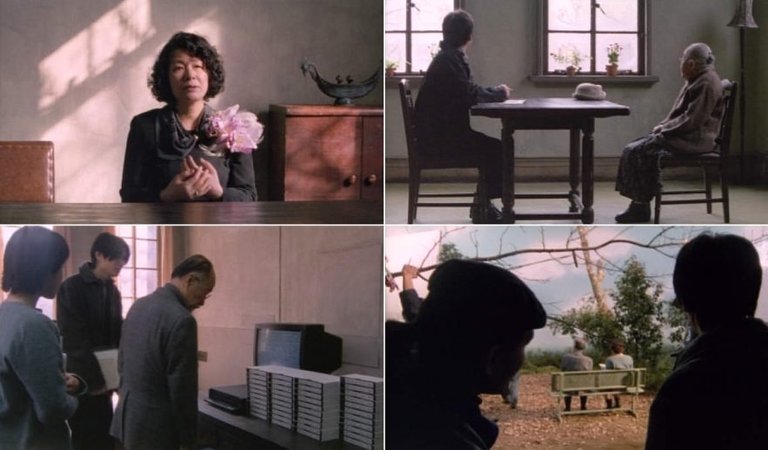
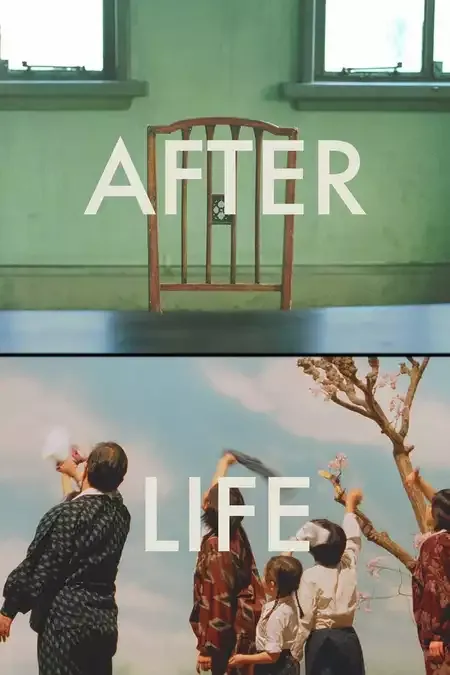

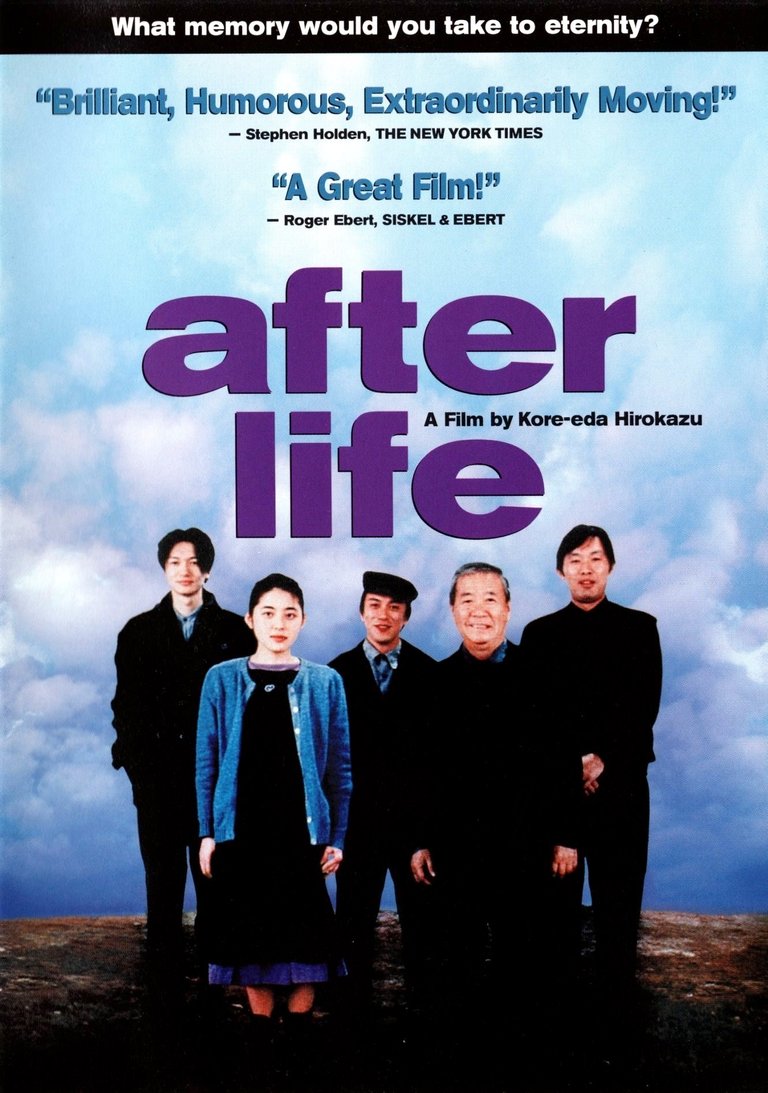
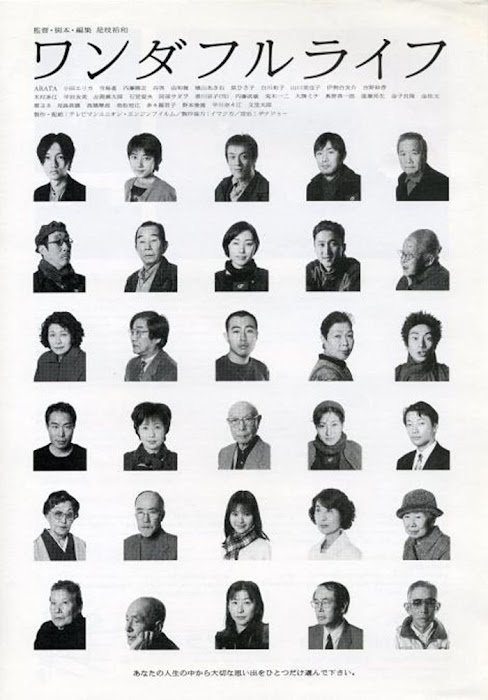

Esta pelicula se ve realmente genial. El hecho de que tengas que atesorar un recuerdo para la eternidad, es un tema diferente...
Tu reseña esta chevere, gracias por traer una pelicula tan interesante, me he enterado que existe!, me ha llamado mucho la atencion, la vere muy pronto! 😄
¡Enhorabuena!
✅ Has hecho un buen trabajo, por lo cual tu publicación ha sido valorada y ha recibido el apoyo de parte de CHESS BROTHERS ♔ 💪
♟ Te invitamos a usar nuestra etiqueta #chessbrothers y a que aprendas más sobre nosotros.
♟♟ También puedes contactarnos en nuestro servidor de Discord y promocionar allí tus publicaciones.
♟♟♟ Considera unirte a nuestro trail de curación para que trabajemos en equipo y recibas recompensas automáticamente.
♞♟ Echa un vistazo a nuestra cuenta @chessbrotherspro para que te informes sobre el proceso de curación llevado a diario por nuestro equipo.
Cordialmente
El equipo de CHESS BROTHERS